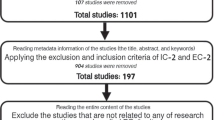Abstract
An international wiki-based collaboration was integrated into a large introductory educational technology course enrolling 346 students, divided into 43 teams. Student teams participated in a 5-week project in which they created wiki chapters about the educational uses of specific Web 2.0 tools. Two to four international students, located in their home countries, participated on each team, collaborating via the evolving wiki, as well as other Web 2.0 tools. Using expectancy-value as our motivational framework, we gathered pre- and post-survey data, triangulated with focus group interview data, to examine changes in students’ confidence and perceived value for using these tools to facilitate international collaborations. Survey results showed significant changes in confidence and perceived value, while qualitative results provided insights into students’ perceptions of critical project components. We discuss students’ perceptions of project barriers as well as the strategies they implemented to achieve success.
Similar content being viewed by others
Notes
The Web 2.0 repository can be viewed at https://wiki.itap.purdue.edu/display/INSITE.
References
Bandura, A. (1997). Self-efficacy: The exercise of control. New York: Freeman.
Bonk, C. J., Lee, M. M., Kim, N., & Lin, M. G. (2009). The tensions of transformation in three cross-institutional wikibook projects. Internet and Higher Education, 12, 126–135.
Carr, T., Morrison, A., Cox, G., & Deacon, A. (2007). Weathering wikis: Net-based learning meets political science in a South African university. Computers and Composition, 24, 266–284.
Dohn, N. B. (2009). Web 2.0: Inherent tensions and evident challenges for education. Computer Supported Collaborative Learning, 4, 343–363.
Dutta, A., Roy, R., & Seetharaman, P. (2008). Wikipedia usage patterns: The dynamics of growth. Proceedings of the international conference on information systems. Paris.
Head, A. J., & Eisenberg, M. B. (2010). How today’s college students use Wikipedia for course-related research. First Monday, 15(3). Retrieved August 3, 2010, from http://firstmonday.org/htbin/cgiwrap/bin/ojs/index.php/fm/article/viewArticle/2830/2476/
Huary, D. L. (2002). Learning science through design. ERIC Digest. Columbus, OH: Clearinghouse for Science Mathematics, and Environmental Education. Retrieved April 29, 2009, from http://www.ericdigests.org/2004-1/design.htm
Judd, T., Kennedy, G., & Cropper, S. (2010). Using wikis for collaborative learning: Assessing collaboration through contribution. Australasian Journal of Educational Technology, 26, 341–354. Retrieved August 3, 2010, from http://www.ascilite.org.au/ajet/ajet26/judd.html
Keller, J. M. (1983). Motivational design of instruction. In C. M. Reigeluth (Ed.), Instructional design theories and models: An overview of their current status (pp. 383–434). Hillsdale, NJ: Erlbaum.
Keller, J. M. (1987). Strategies for stimulating the motivation to learn. Performance and Instruction, 26(8), 1–7.
Larruson, J. A., & Alterman, R. (2009). Wikis to support the “collaborative” part of collaborative learning. Computer Supported Collaborative Learning, 4, 371–402.
Mestenhauser, J. A. (2003). Building bridges. International Educator, 12(4), 6–11.
Moore, T. D., & Serva, M. A. (2007). Understanding member motivation for contributing to different types of virtual communities: A proposed framework. Proceedings of the 2007 Association for Computing Machinery Special Interest Group on Management Information Systems (ACM SIGMIS) Conference on Computer Personal Research (pp. 153–158). Retrieved August 4, 2010, from http://portal.acm.org/citation.cfm?id=1235035
Ortega, F., Gonzalez, J., & Robles, G. (2008). On the inequality of contributions to Wikipedia. In Proceedings of the 41st Hawaii International Conference on Systems Science (HICSS). IEEE Computer Society. Retrieved, August 4, 2010, from http://libresoft.es/oldsite/downloads/Ineq_Wikipedia.pdf
Pintrich, P. R., & Schunk, D. H. (2002). Motivation in education: Theory, research, and applications (2nd ed.). Upper Saddle River, NJ: Merrill/Prentice Hall.
Project Tomorrow. (2010). Unleashing the future: educators “speak up” about the use of emerging technology for learning. Speak Up 2009 National Findings. Retrieved August 3, 2010, from http://www.tomorrow.org/speakup/speakup_reports.html
Rowbotham, J. (2008, August 20). Learning Web 2.0, or Gen-Y Speak. The Australian Higher Education. Retrieved January 3, 2009, from http://www.theaustralian.news.com.au/story/0,,24208226-12332,00.html
Vratulis, V., & Dobson, T. M. (2008). Social negotiations in a wiki environment: A case study with pre-service teachers. Educational Media International, 45, 285–294.
West, C. (2010). Borderless via technology. International Educator, 19(2), 24–33.
Wigfield, A., & Eccles, J. S. (2000). Expectancy-value theory of achievement motivation. Contemporary Educational Psychology, 25, 68–81.
Author information
Authors and Affiliations
Corresponding author
Rights and permissions
About this article
Cite this article
Ertmer, P.A., Newby, T.J., Liu, W. et al. Students’ confidence and perceived value for participating in cross-cultural wiki-based collaborations. Education Tech Research Dev 59, 213–228 (2011). https://doi.org/10.1007/s11423-011-9187-4
Published:
Issue Date:
DOI: https://doi.org/10.1007/s11423-011-9187-4




